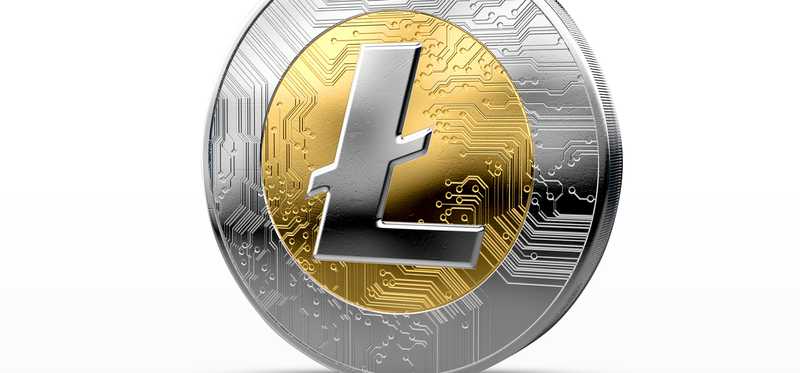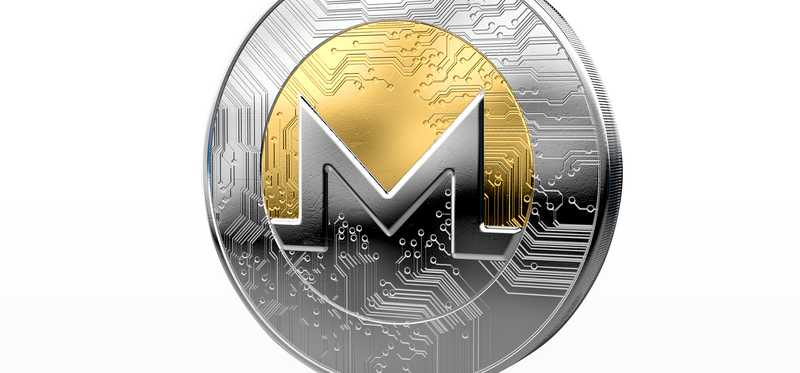The 6 Top Cryptocurrency Alternatives to Bitcoin

The 6 Top Cryptocurrency Alternatives to Bitcoin
Move over, bitcoin, and make way for these more promising cryptocurrencies
In many ways, bitcoin has carried the cryptocurrency market on its back. For years, prior to March 2017, bitcoin comprised between 75% and 95% of the aggregate virtual currency market cap. Even today, with more than 1,600 different digital currencies for investors to choose from, bitcoin still accounts for around 37% of the aggregate $430 billion cryptocurrency market cap.
Investors have relished in bitcoin’s first-to-market advantage -- trading began all the way back in March 2010 -- as well as its numerous partnerships with online and brick-and-mortar merchants. The scarcity of bitcoin, vis-à-vis its 21-million-coin limit, has also played a role in pushing its valuation higher than all other virtual tokens.
But what if bitcoin doesn’t turn out to be the greatest thing since sliced bread among virtual coins? For instance, its blockchain network has been bogged down by the inability of its community to reach consensus on what upgrades should be implemented. The result has been significantly slower transaction validation and settlement times than its peers. Even with the hope of implementing the Lightning Network to speed up bitcoin’s processing times, the damage could already be done.
Rather than placing your trust (or hard-earned money) in a stodgy virtual currency, consider the following six cryptocurrencies as possible alternatives to bitcoin that could one day takes its place as the world’s most valuable virtual currency.
Previous
Next

1. Ethereum
With little exception, Ethereum has been firmly planted as the No. 2 most valuable cryptocurrency for about a year. I’ve stated my case that it very well could be, and should be, the world’s top virtual coin thanks to the utility of its underlying blockchain technology. Blockchain being the digital, distributed, and decentralized ledger responsible for recording transactions in a transparent and unchanging manner.
There are two factors that really allow Ethereum to stand out. First, its blockchain technology allows for currency and non-currency use, whereas bitcoin’s blockchain and token are to be used solely as a medium of exchange for goods and services. Banks can use Ethereum’s blockchain to expedite the validation and settlement of transactions just as easily as retailers can use Ethereum’s blockchain to track goods moving through a supply chain in real time. Though not all industries and sectors will necessarily benefit from blockchain, Ethereum’s underlying network offers enough versatility that it’s turning heads. In fact, the Enterprise Ethereum Alliance, the world’s largest open-source blockchain initiative, is now 450 organizations strong.
Secondly, Ethereum’s incorporation of smart contracts is key. Smart contracts are protocols built into a blockchain network that act as guidelines for execution. Let’s say a company wants to buy more product when its sales hit a certain level -- smart contracts can do just that by executing the order. They help facilitate, verify, and enforce the negotiation of a contract, which in this instance would be the legally binding terms that parties, which could be people or businesses, have agreed upon.
Smart contracts and the utility of Ethereum’s blockchain give it a strong case to overtake bitcoin at some point in the future.
Previous
Next

2. Litecoin
Most virtual currencies are all about their underlying blockchain technology. However, Litecoin is looking to top bitcoin at its own game as the go-to medium of exchange.
Litecoin is aiming to partner with as many merchants as possible, and it’s done a pretty good job of closing the gap behind bitcoin in terms of total daily transactions. According to daily transaction data from BitInfoCharts.com, bitcoin has been “stuck” between 150,000 and 300,000 transactions per day since the beginning of 2016. Meanwhile, Litecoin has surged from handling fewer than 10,000 transactions a day, on average, a year ago, to between 25,000 and 35,000 transactions daily over the past month. With an average block processing time of just 2-1/2 minutes -- a “block” is a term describing a group of transactions that’s been validated as correct -- compared to bitcoin at 10 minutes, Litecoin offers significantly faster validation and settlement times than its foe.
But Litecoin isn’t perfect, either. Even though its founder, Charlie Lee, is working full-time to further the development of Litecoin and facilitate new merchant enrollment, it’s had a few flubs. For example, Lee touted the development and expected launch of LitePay, a payment platform specifically designed to support Litecoin, though developed independently of Litecoin. Unfortunately, LitePay never lived up to the hype. In fact, it never even launched, with LitePay CEO Kenneth Asare informing Litecoin of his intention to halt work on the platform and sell the company.
Yet, even with these hiccups, few if any medium-of-exchange coins have demonstrated the ability to process transactions quicker than Litecoin.
Previous
Next

3. Monero
Privacy coin Monero is another cryptocurrency alternative that has a chance to unseat bitcoin as the world’s most important virtual token.
A privacy coin is a virtual token that takes the expectation of transaction anonymity and beefs it up a whole bunch. Truth be told, most blockchain networks aren’t as private as you’d think. Blockchain analyses can often reveal the sender and receiver of funds. With privacy coins like Monero, protections are put in place to obfuscate the sender and receiver of funds, as well as mask how much money was sent. With specific regard to Monero, this is done with ring signatures -- think of a bank account with multiple signees, although you’d never know who the actual sender was -- and stealth addresses that alert only the recipient of the funds.
Monero speaks to libertarians who long for a way around traditional banking networks, as well as those people who simply want to remain under the radar. This attraction could well be enough to pump up its market cap over the long run.
Then again, Monero and its privacy coin peers are also accused of being the crypto choice of criminals due to their ability to obfuscate the movement of money. Likewise, tougher regulations from the likes of South Korea, which requires the identity of virtual currency traders to be confirmed prior to linking a domestic bank account to a cryptocurrency exchange, could impede Monero and other privacy coins. If Monero can somehow clear concerns about anonymity, it could give bitcoin a run for its money.
Previous
Next

4. Stellar
Another cryptocurrency that has a genuine shot of replacing bitcoin at the head of the table is Stellar, which has made a name for both its blockchain and its Lumens coin.
Stellar’s blockchain is particularly revered for two aspects. First, it’s really fast. Most transactions can be validated and settled in a matter of two to five seconds. Though that might not sound as impressive as a real-time transaction, it’s considerably quicker than the up to five business day wait current payments could take on traditional banking networks. Secondly, like Ethereum, Stellar incorporates the use of smart contracts, allowing enterprises to customize legally binding contracts to fit their business needs.
The result is that Stellar has locked in some intriguing
partnerships. Right now, its Lumens coin is being used on an IBM blockchain project at a
dozen major banks in the South Pacific to expedite payment settlement and
validation. Prior to this partnership being announced, Stellar and India’s ICICI Bank worked together
to create blockchain solutions to increase transaction processing speeds in
India. Considering just how much of India’s population is underbanked,
blockchain could play a particularly game-changing role in emerging market
economies like
this.
Though Stellar still has to prove its ability to scale, its growing cadre of partnerships and relatively quick-processing blockchain network should have bitcoin investors worried.
ALSO READ: 3 Top Cryptocurrencies for 2018
Previous
Next

5. VeChain Thor
If we were to focus strictly on non-currency blockchain applications, VeChain Thor might be the likeliest alternative to unseat bitcoin as the world’s most valuable digital currency.
VeChain Thor is a blockchain-as-a-service company that primarily focuses on supply chain logistics. In conjunction with developed smart chips, VeChain Thor essentially uses blockchain and the Internet of Things to track products in real-time, keep counterfeit products out of supply chains, and allow retailers and wholesalers a glimpse at how products performed in various quality control tests.
What’s put VeChain Thor on the map are its recent partnerships. It first partnered with global assurance service DNV GL to allow retailers to track products in real-time. But the big newsmaker was its late February announcement that it and German auto giant BMW would be teaming up. In particular, VeChain Thor and its unalterable blockchain will aid BMW in tracking its auto parts supply chain so as to eliminate child labor.
What’s more, VeChain Thor was also the very first digital currency to pass the Cryptocurrency Disaster Recovery Plan (CDRP), per PwC. The CDRP acts as a stress test for the crypto market, with the most serious and likely threats to virtual coin holders being examined. It was determined that VeChain Thor’s responses to these threats were sufficient so as to protect the assets of token holders.
While still a relative unknown, VeChain Thor is building quite the resume.
Previous
Next

6. Binance Coin
Finally, I figured we’d throw one absolute wildcard into the ring as a bitcoin alternative: Binance Coin (BNB). If the name sounds familiar, that’s likely because Binance Coin is the exclusive token issued on the Binance cryptocurrency exchange.
There are quite a many factors that help to pump up the value of BNB coins. In particular, Binance incentivizes members to use the BNB coin when paying for fees in exchange for discounts. This alone can buoy the value of the BNB token, helping to explain why it’s one of the top performers in 2018. Binance offers a 50% trading-fee discount for the first year if using Binance Coin to pay for trading fees, with a staggered (but smaller) series of discounts through a member’s first four years.
Additionally, Binance intends to use 20% of its profits to “repurchase” 50% of its outstanding Binance Coin. Known as “coin burn,” this process involves sending these coins to an address with an unobtainable private key. By taking these coins out of circulation, each remaining coin becomes scarcer, which is expected to result in a higher per-token price. The idea is similar to a publicly traded stock repurchasing its own shares, with a few twists.
The downside here is that they aren’t too many uses for Binance Coin off of the Binance exchange. For instance, crypto payment platform Monaco currently supports the BNB coin on its Monaco Visa card, but there aren’t too many other uses at the moment. But that could change quickly if BNB continues to grow in popularity.
Previous
Next

Risks abound
Despite new and exciting things happening in the cryptocurrency space seemingly every week, there’s still no guarantee that these six virtual currencies, or even bitcoin, have what it takes to survive and thrive over the long run. Piecemeal regulation that varies by country, as well as the fact that investors have no true ownership in the asset that actually matters -- i.e., the underlying blockchain network -- makes buying into cryptocurrencies a real gamble.
Sean Williams has no position in any of the stocks or cryptocurrencies mentioned. The Motley Fool is short shares of IBM. The Motley Fool owns shares of and recommends Visa. The Motley Fool recommends BMW, but has no position in any cryptocurrencies mentioned.. The Motley Fool has a disclosure policy.
Previous
Next
Invest Smarter with The Motley Fool
Join Over Half a Million Premium Members Receiving…
- New Stock Picks Each Month
- Detailed Analysis of Companies
- Model Portfolios
- Live Streaming During Market Hours
- And Much More
READ MORE
HOW THE MOTLEY FOOL CAN HELP YOU
-
Premium Investing Guidance
Market beating stocks from our award-winning service
-
The Daily Upside Newsletter
Investment news and high-quality insights delivered straight to your inbox
-
Get Started Investing
You can do it. Successful investing in just a few steps
-
Win at Retirement
Secrets and strategies for the post-work life you want.
-
Find a Broker
Find the right brokerage account for you.
-
Listen to our Podcasts
Hear our experts take on stocks, the market, and how to invest.
Premium Investing Services
Invest better with The Motley Fool. Get stock recommendations, portfolio guidance, and more from The Motley Fool's premium services.